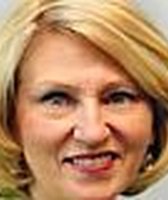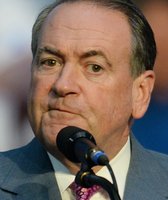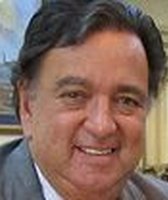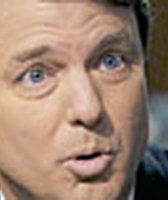Stand up for the facts!
Our only agenda is to publish the truth so you can be an informed participant in democracy.
We need your help.
I would like to contribute
SUMMARY: Former Arkansas governor Mike Huckabee is claiming a superlative record on education in his home state, and while everyone agrees there was progress that doesn't mean everyone thinks he deserves credit.
As Huckabee gains in popularity, he seeks to distinguish himself more starkly from his main competitors.
And not just on religion.
During a Dec. 12, 2007 debate in Iowa, standing right beside key rival Mitt Romney, Huckabee claimed to have the "most impressive" education record of any of the Republicans seeking the presidency in 2008. As if Romney, a one-term Massachusetts governor, and Rudy Giuliani, who ran New York City schools as mayor for eight years, couldn't hold a candle.
"We raised standards, we measured and we held people accountable for the results," Huckabee said, stating that the president, though not responsible for many education issues, can and should use the office as a bully pulpit to push for education reform in the states.
It's true. Arkansas did those things with Huckabee at the helm.
The state put more money into education, saw student test scores rise considerably and focused on such issues as improving student health and ensuring kids get music and art in addition to reading and math.
While few consider Giuliani an education visionary — the Los Angeles Times deemed his education record "eight years of chaos" — many observers say Romney can make an equally valid claim as Huckabee to having an "impressive" track record.
As Arkansas students were rising from the bottom to the middle of the pack nationally, Massachusetts fourth- and eighth-graders claimed to the top spot on the "nation's report card" in both math and science not just once, but twice during Romney's tenure. No other state had ever pulled off such a feat before.
In another oft-cited measure, Education Week ranked Arkansas 39th on its "chance for success" index, compared to Massachusetts' fifth.
Roger Sampson, executive director of the Education Commission of the States, gave both men high marks for walking the walk when it comes to schools.
There's also the question of whether Huckabee was an agent for change, or simply in the right place at the right time. Some of his detractors and observers suggest that he can't take credit for all the progress.
"He was the governor of Arkansas, but as far as being part of the process, he was not present," said Tom Kimbrell, executive director of the Arkansas Association of Educational Administrators. With the exception of Huckabee's arts education initiative, he said, "There was no leadership at all."
Before Huckabee took office in 1996, Arkansas students hovered near the bottom of most academic measures. Less than a quarter of fourth-graders were reading at or above grade level and less than 10 percent were at grade level in math, for instance.
Within two years, Huckabee kicked off a series of measures creating a focus on reading and math and establishing a comprehensive testing program. By 2007, the state was seeing positive results. Arkansas fourth-graders had made the biggest advances in math of any state on the National Assessment of Educational Progress. Arkansas eighth-graders were second in gains nationally.
The state also ranked in the top five for gains among African-American and low-income students, an area where it particularly lagged. Arkansas also saw double-digit growth in Advanced Placement participation rates.
Huckabee pressed for all students to get an arts education, signing a bill to require at first 40 minutes and, later, an hour of weekly music and art. He aimed to fight student obesity, a problem he faced himself, with a mandate to measure and report kids' body mass index and to remove junk foods from school cafeterias.
And when faced with a court order finding the state's education funding program "inequitable and inadequate," Huckabee responded with a controversial proposal to consolidate the state's smallest school districts.
But Huckabee "certainly didn't say, 'Let's get into education,' " said Gary Ritter, a University of Arkansas associate professor of education and public policy. "He was faced with an equity lawsuit and he had to respond to it."
Ritter, who remains undecided in the presidential race, credited Huckabee for trying to tackle the finance problem rather than ignoring the court order or criticizing the judiciary for usurping the role of the executive and legislative branches.
Yet, he added, the governor's effort to consolidate districts did not save money as Huckabee predicted. Districts closed, operations expenses actually rose as such costs as busing grew, and some newly joined districts remain in disarray as they try to work out all the logistics of their operations.
Ritter also noted that on some of Huckabee's pet projects, like arts education, many critics found him micromanaging. What's more, he said, even with its improvements Arkansas remains pretty far back in the pack.
Kimbrell was less charitable.
The state's reform and accountability movement emerged from the business community, and not the governor's office, he said. And rather than have a good relationship with the education establishment, Huckabee chose to work at odds with those who might have helped him.
He knew what the state needed and didn't veto key measures, but "he wasn't a friend of public schools, in my opinion," said Kimbrell, who hasn't picked anyone to support in the presidential race.
Huckabee's mixed record hasn't stopped at least one education group in a key state from backing him. The New Hampshire chapter of the National Education Association recently gave Huckabee its backing, marking the first time the group has endorsed a Republican.
So give Huckabee credit where it's due. Education did improve in Arkansas under his watch. But as for his boast of being the best on education, take that one with a grain of salt.
Our Sources
Interview, Roger Sampson, executive director, Education Commission of the States, Dec. 18, 2007
Interview, Gary Ritter, associate professor of Education and Public Policy, University of Arkansas, Dec. 19, 2007
Interview, Tom Kimbrell, executive director, Arkansas Association of Educational Administrators, Dec. 19, 2007
Koret Task Force, Education Reform in Arkansas: Past and Present, by Gary Ritter, University of Arkansas, 2005
National Assessment of Educational Progress, Data Explorer 2007
The Education Trust, Statement on the 2007 Math and Reading Results from The Nation's Report Card
National Access Network of Columbia University, Arkansas school finance litigation information, July 2007
Concord (N.H.) Monitor, Huckabee has varied record on education; Teachers union endorses him, Dec. 12, 2007
Education Week, Quality Counts 2007, Jan. 4, 2007
The Education Trust, Education Watch reports for Arkansas, Fall 1998 and Fall 2006 Education Commission of the States, Putting the Arts Front and Center on the Education Agenda, July 2004
The Encyclopedia of Arkansas History & Culture, Mike Huckabee entry
Huckabee for President Exploratory Committee, Inc.,
Los Angeles Times, Giuliani's poor school marks, Sept. 13, 2007
Boston Globe, New governor to face test on student achievement, Sept. 5, 2006













































